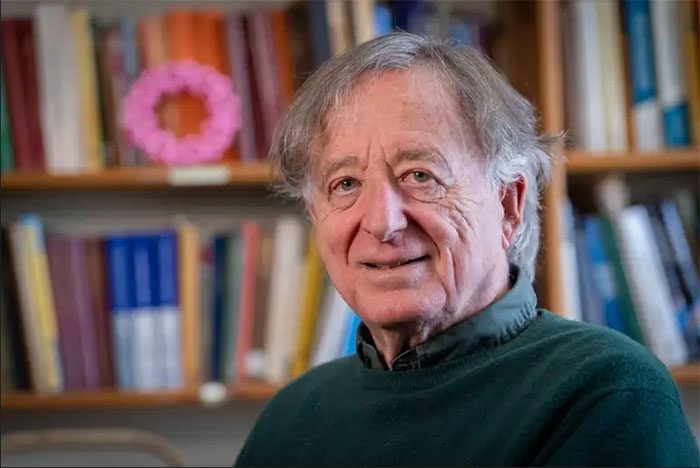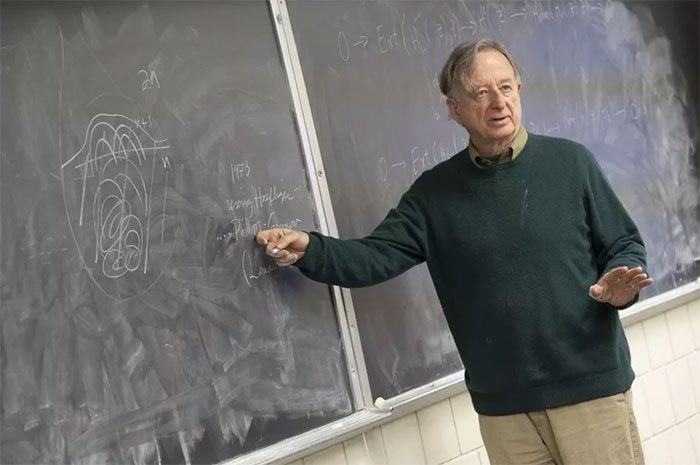Dennis Sullivan was awarded the Abel Prize in 2022 – one of the most prestigious awards in mathematics, for his contributions to the field of topology and dynamical systems.
According to a statement from the Norwegian Academy of Science and Letters (DNVA), Dennis Sullivan, an American mathematician, received the 2022 Abel Prize for his groundbreaking contributions in the area of topology through the integration of algebra, geometry, and dynamics.

Mathematician Dennis Sullivan.
Topology is the field of study that examines properties of objects and spaces that remain unchanged when they are deformed. These objects can be envisioned as a form of “rubber geometry”, as they can be stretched into various shapes similar to rubber, yet their connectivity cannot be broken.
For instance, a square can be deformed into a circle without “breaking,” but a donut structure (with another circle inside) cannot. Therefore, a square can be considered topologically equivalent to a circle.
Sullivan is currently a mathematics professor at Stony Brook University in New York, USA. He began his research in topology as a graduate student at Princeton University in the early 1960s.
His 1966 doctoral thesis, titled “Triangulation Homotopy Equivalences,” revolutionized the study of manifolds, or spaces that “appear flat” when viewed from any point on their surface but have a complex overall structure (like the surface of a sphere).

Dennis Sullivan presenting on a blackboard at Stony Brook University in New York, USA. (Photo: Abel Prize).
In the following decades, Sullivan continued to hold fellowships at the University of Warwick in the UK; the University of California, Berkeley; and MIT. According to the DNVA, he gradually transformed how mathematicians think about algebraic topology and geometry by introducing new ideas and developing a series of “vocabularies”.
In 1970, he wrote a set of unpublished notes that circulated widely and were considered highly influential, directly impacting the classification of manifolds and key issues in algebraic topology.
By the late 1970s, Sullivan began investigating problems in dynamical systems, including the study of a moving point in geometric space, a fundamental part of chaos theory (also known as the theory of turbulence).
His work combined dynamical systems and algebraic topology in unprecedented ways. In 1985, Sullivan proved a 60-year-old hypothesis that points moving through a complex dynamical system modeled fractally would eventually return to their starting point rather than “wander” indefinitely.
Through his theories, Sullivan has repeatedly changed the understanding of topology by introducing new concepts, proving groundbreaking theorems, refuting old hypotheses, and forming new problems, thus advancing the field to new heights.
| The Abel Prize is an award presented annually by the King of Norway to outstanding mathematicians. The award ceremony takes place in the auditorium of the Faculty of Law at the University of Oslo, which also hosted the Nobel Peace Prize ceremony from 1947 to 1989. The Abel Prize Committee also established the Abel Seminar, managed by the Norwegian Mathematical Society. |


















































